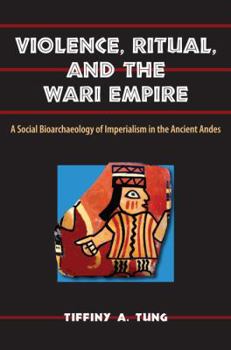Violence, Ritual, and the Wari Empire: A Social Bioarchaeology of Imperialism in the Ancient Andes
(Part of the Bioarchaeological Interpretations of the Human Past Series)
Select Format
Select Condition 
Book Overview
"A ground-breaking study that provides one of the best case studies we have in the bioarchaeology of violence. A must-read for anyone interested in the origin and evolution of aggression and violence in human societies."--Debra L. Martin, University of Nevada
"In this exciting new work, Dr. Tung provides the first comprehensive view of life and the bodies inside ancient Peru's Wari Empire. Situating the study of archaeological human remains where bioarchaeology and the contemporary archaeology intersect, Tung focuses on the lived experience of Wari inhabitants to explore the creation of bioarchaeological narratives, the ways that bodies become material culture, and the influence of imperial control."--Christina Torres-Rouff, Colorado College
The Wari Empire thrived in the Peruvian Andes between AD 600 and 1000. This study of human skeletons reveals the biological and social impact of Wari imperialism on people's lives, particularly its effects on community organization and frequency of violence of both ruling elites and subjects.
The Wari state was one of the first politically centralized civilizations in the New World that expanded dramatically as a product of its economic and military might. Tiffiny Tung reveals that Wari political and military elites promoted and valorized aggressive actions, such as the abduction of men, women, and children from foreign settlements. Captive men and children were sacrificed, dismembered, and transformed into trophy heads, while non-local women received different treatment relative to the men and children.
By inspecting bioarchaeological data from skeletons and ancient DNA, as well as archaeological data, Tung provides a better understanding of how the empire's practices affected human communities, particularly in terms of age/sex structure, mortuary treatment, use of violence, and ritual processes associated with power and bodies.





